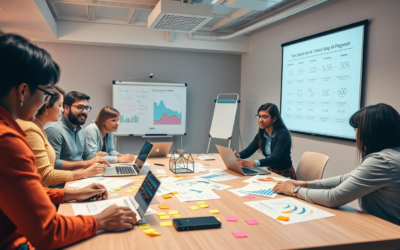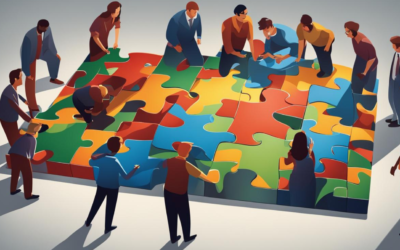Effective teamwork is essential for any organization striving to achieve its goals.
However, creating a cohesive and high-performing team is no easy task.
The role of a team building facilitator is vital in ensuring that teams can work together collaboratively and productively.
This section will explore the critical roles and responsibilities of a team building facilitator and highlight how their expertise can contribute to the success of your team building activities.
Key Takeaways
- A team building facilitator plays a crucial role in creating cohesive and high-performing teams.
- Their expertise in guiding and facilitating team building activities can greatly contribute to the success of your organization.
- Team building facilitator responsibilities include creating a positive and supportive team environment, enhancing collaboration and communication, building trust and engagement
Last,measuring the impact of team building initiatives.
Key Responsibilities
A team building facilitator is a skilled professional who possesses the necessary know-how to navigate through the dynamic and diverse world of team building.
They are equipped with a wide range of skills and techniques to guide and facilitate effective team building exercises.
Let’s take a closer look at some of the key responsibilities of a team building facilitator:
Book a Interactive Game Show!
Call us today. TV Style Game Shows are our specialty. Let’s Play!
Planning and Preparation
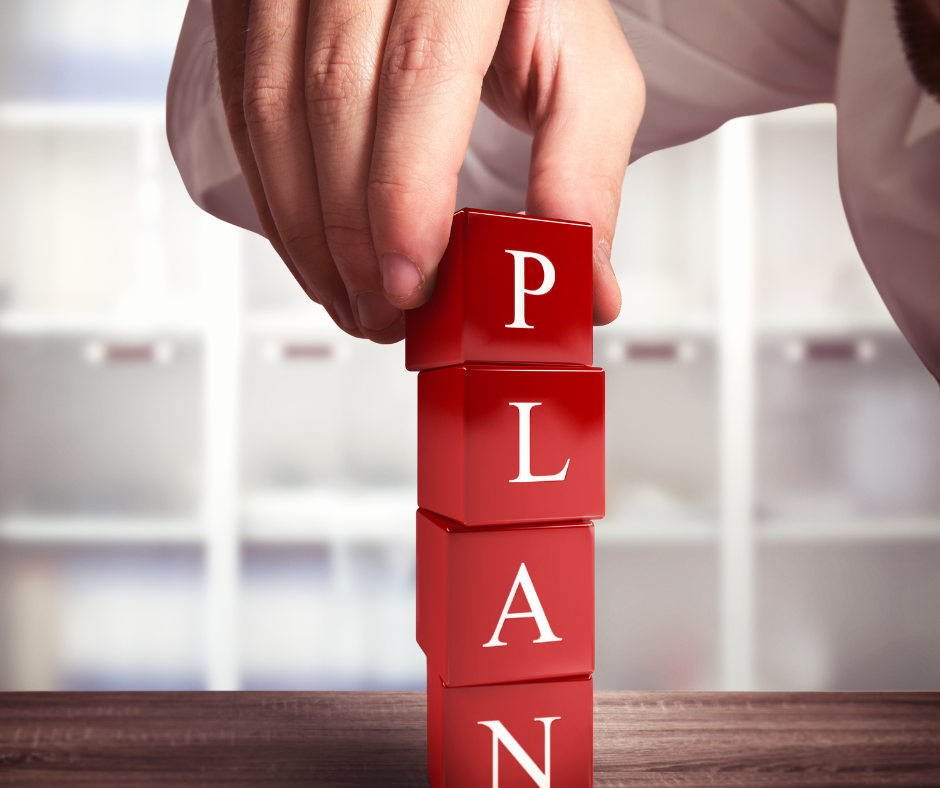
team-building-planning
One of the crucial skills of a team building facilitator is the ability to plan and prepare for team building activities.
They create a detailed framework for the activities, taking into consideration the team’s strengths, weaknesses, and communication styles.
This planning ensures that the activities align with both the team’s objectives and the organization’s strategic goals.
Facilitation Techniques
Facilitation techniques are critical to the success of team building activities.
A team building facilitator must possess the skills to create a positive environment that promotes open communication, active listening, and constructive feedback.
They must be able to handle difficult group dynamics and ensure that everyone feels heard and valued.
Group Dynamics Management
A team building facilitator must understand the various personalities and traits that make up a team.
They must be able to manage group dynamics to encourage collaboration and positive interactions among team members.
They also need to be able to identify potential issues that may arise during team building exercises and adjust their techniques accordingly.
| Team Building Facilitator Skills | Team Building Facilitator Techniques |
|---|---|
| Effective Communication Skills | Active Listening |
| Conflict Resolution Skills | Mediation |
| Leadership Skills | Encouraging Participation |
| Time Management Skills | Keeping Activities on Schedule |
Monitoring and Evaluation
A team building facilitator is responsible for monitoring and evaluating the success of team building activities.
They gather feedback from team members and assess the outcomes of the activities.
This feedback helps the facilitator to adjust their techniques and activities for future sessions, ensuring continuous improvement.
Effective team building facilitation requires a combination of skills, techniques, and experience.
A skilled team building facilitator possesses the ability to connect with individuals and the entire team, creating a positive and productive environment that catalyzes growth and development.
With the right facilitator, your team building activities can achieve substantial success and create a lasting impact on your team.
The Role of a Facilitator in Team Building Activities
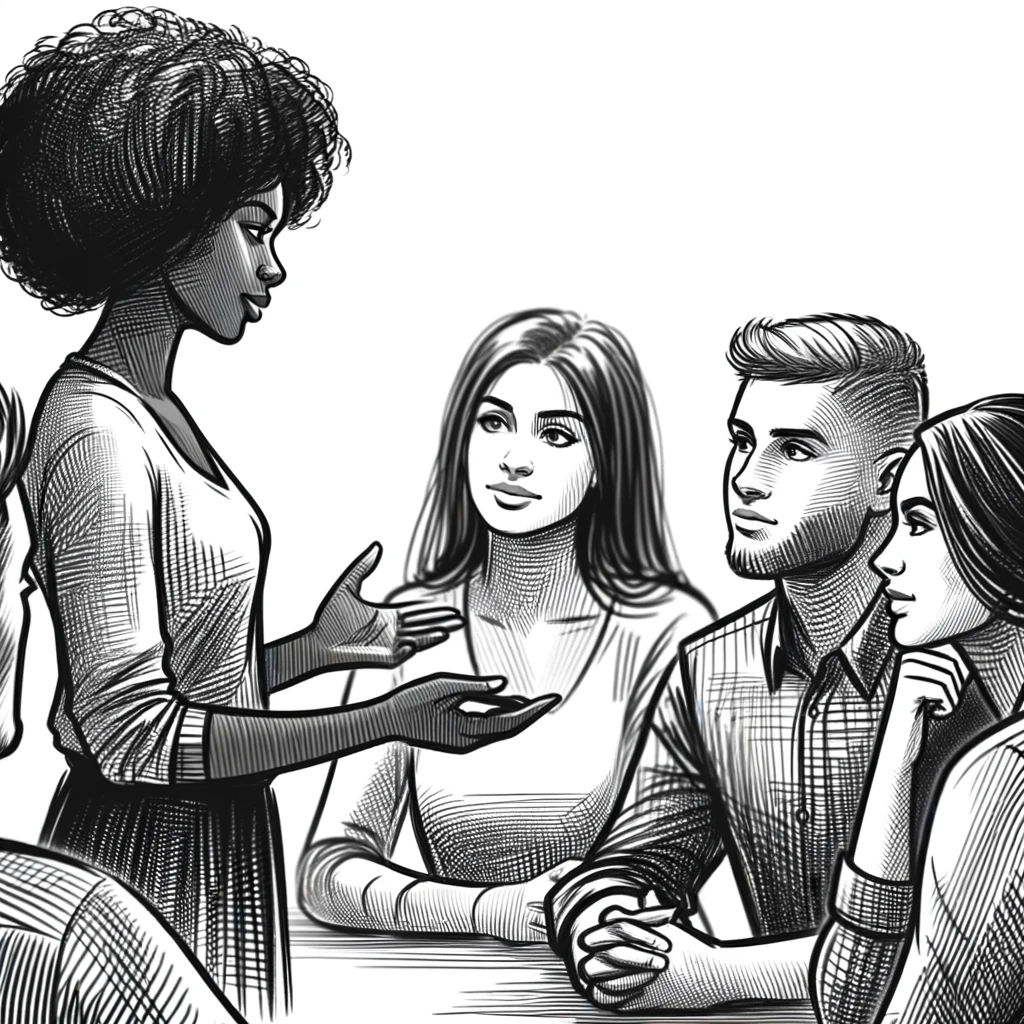
The-crucial-role-of-a-facilitator
Team building activities are an excellent way to create a positive work environment that promotes collaboration, communication, and trust between team members.
However, the success of team building activities depends on the effectiveness of the facilitator.
The facilitator plays a pivotal role in creating a safe and supportive environment that encourages team members to participate and engage in activities.
They are responsible for setting the tone of the event, establishing ground rules, and ensuring that everyone feels included.
Not only that, but a facilitator also helps to identify and address any conflicts that may arise during the activities.
1 – Creating a Safe Space for Collaboration
One of the most important roles of a facilitator is to create a safe space for collaboration.
They must establish an environment that encourages open communication and promotes trust between team members.
This means that the facilitator must be empathetic and understanding of the individual needs of each team member.
The facilitator must also be skilled at managing group dynamics.
They need to be able to recognize when a team member is feeling left out or uncomfortable and take the necessary steps to address the situation.
This may involve modifying the activity to make it more inclusive or engaging with the team member to understand their concerns.
2 – Encouraging Participation
A facilitator’s role is to encourage participation and ensure that everyone is engaged in the activities.
They need to be able to adapt their approach to suit the needs of different team members.
For instance, some members may be shy or introverted, while others may be more outgoing and sociable.
The facilitator must also be able to foster a sense of belonging among team members.
They need to create an environment where everyone feels valued and respected.
This means that they need to encourage active listening, constructive feedback, and positive reinforcement throughout the activities.
3 – Managing Conflict
Conflicts are an inevitable part of team building activities, and the facilitator must be prepared to manage them effectively.
Conflict may arise due to differences in opinions, personality clashes, or misunderstandings.
The facilitator’s role is to mediate the conflict and help the team members find a resolution.
They need to be able to identify the root cause of the conflict and work with the team members to find a mutually beneficial solution.
This involves active listening, empathy, and the ability to remain neutral throughout the process.
Strategies for Effective Team Building Facilitation
Team building facilitators employ various strategies to ensure successful outcomes. Let’s take a closer look at some of these strategies:
- Plan ahead: A well-planned team-building session sets the foundation for success. Begin by defining clear objectives and outcomes. Choose activities that align with the team’s goals, strengths and weaknesses.
- Encourage participation: Create a safe and supportive environment where team members feel comfortable to participate and share ideas. Avoid activities that might cause discomfort or embarrassment.
- Provide feedback: Feedback is critical for team members to improve their performance and build trust. Encourage open communication and constructive feedback.
- Customize activities: Not all teams are the same, so don’t assume that one approach fits all. Customize activities to meet the unique needs and challenges of each team.
- Follow up: Follow up after the team building session to reinforce the learning, provide additional resources, and assess the effectiveness of the session. Use feedback to improve future sessions.
Effective team-building facilitation requires careful planning and execution.
By following these strategies, you can ensure that your team-building sessions achieve the desired outcomes and help create a more cohesive and high-performing team.
Book a Interactive Game Show!
Call us today. TV Style Game Shows are our specialty. Let’s Play!
Qualities of a Good Team Building Facilitator
Team building facilitators are essential for creating successful team building activities.
They possess the skills and techniques required to guide team members towards achieving common goals.
Below are some of the essential qualities that a good team building facilitator should possess:
| Qualities of a Good Team Building Facilitator | Description |
|---|---|
| Adaptability | A good facilitator is adaptable to different situations and able to adjust their approach to meet the unique needs and challenges of each team. |
| Empathy | Facilitators with empathy are better able to connect with team members and understand their perspectives. They, help to create a safe and supportive environment for team building activities. |
| Active Listening | Active listening is an important skill for a team building facilitator. They must be able to listen carefully to team members to ensure that everyone feels heard and valued. |
| Leadership | A team building facilitator must have strong leadership skills to guide team members towards achieving common goals. Also, should be able to inspire and motivate team members to perform their best. |
| Excellent Communication Skills |
A good facilitator possesses excellent communication skills, both verbal and nonverbal. They must be able to articulate complex ideas and concepts in a way that is easy to understand and engage team members in meaningful discussions. |
| Patience | Patience is an essential quality for a facilitator. They must be able to handle challenging situations with grace and composure while still maintaining a positive and supportive environment for team members. |
These are just a few of the essential qualities that a good team building facilitator should possess.
By hiring a facilitator with these qualities, you can ensure that your team building activities are engaging, effective, and successful.

Corporate Game Show Host
Essential Tools for Teamwork Facilitation
As a teamwork facilitator, your arsenal of tools extends far beyond pens and paper.
Modern technology, engaging activities, and visual aids have the potential to enhance the impact of your team building initiatives.
Here are some essential tools to consider:
| Tool | Description |
|---|---|
| Video conferencing software | Useful for remote teams to conduct virtual meetings, share screens, and collaborate in real-time. |
| Collaboration software | Online tools designed to aid communication and project management in groups. |
| Icebreaker games | Engaging activities to break the ice and get team members comfortable with each other. |
| Team-building exercises | Structured activities designed to improve communication, collaboration, and problem-solving abilities. |
| Mind mapping software | Tools to support creative brainstorming and planning activities. |
| Visual aids | Charts, diagrams, and other graphical representations to help team members visualize concepts and ideas. |
By leveraging these tools, you can create a dynamic and engaging environment that fosters teamwork and collaboration.
Moreover, you can tailor your approach to different teams, providing customized solutions that address their unique challenges and goals.
Creating a Positive and Supportive Team Environment
As a team building facilitator, it is your responsibility to foster a positive and supportive team environment.
Your role includes encouraging open communication, resolving conflicts, and promoting a sense of belonging.
One effective way to create a positive team environment is by establishing clear and open communication channels.
Encourage team members to express their opinions and ideas freely, without fear of judgment or retribution.
You can achieve this by using active listening techniques, such as paraphrasing and summarizing, to demonstrate that you value their input.
In addition to communication, team-building facilitators must be skilled at conflict resolution.
When conflicts arise, it is your responsibility to address them promptly, objectively, and constructively.
Encourage team members to work together to find mutually beneficial solutions and prioritize the team’s goals over individual interests to build a sense of unity and collaboration.
Finally, promoting a sense of belonging is crucial to creating a supportive team environment.
One way to achieve this is by organizing team bonding activities such as team lunches or outings that encourage team members to get to know one another on a personal level.
Providing opportunities for team members to engage in fun activities together ultimately builds trust, increase communication, and collaboration.
This leads to increased productivity and better team performance.
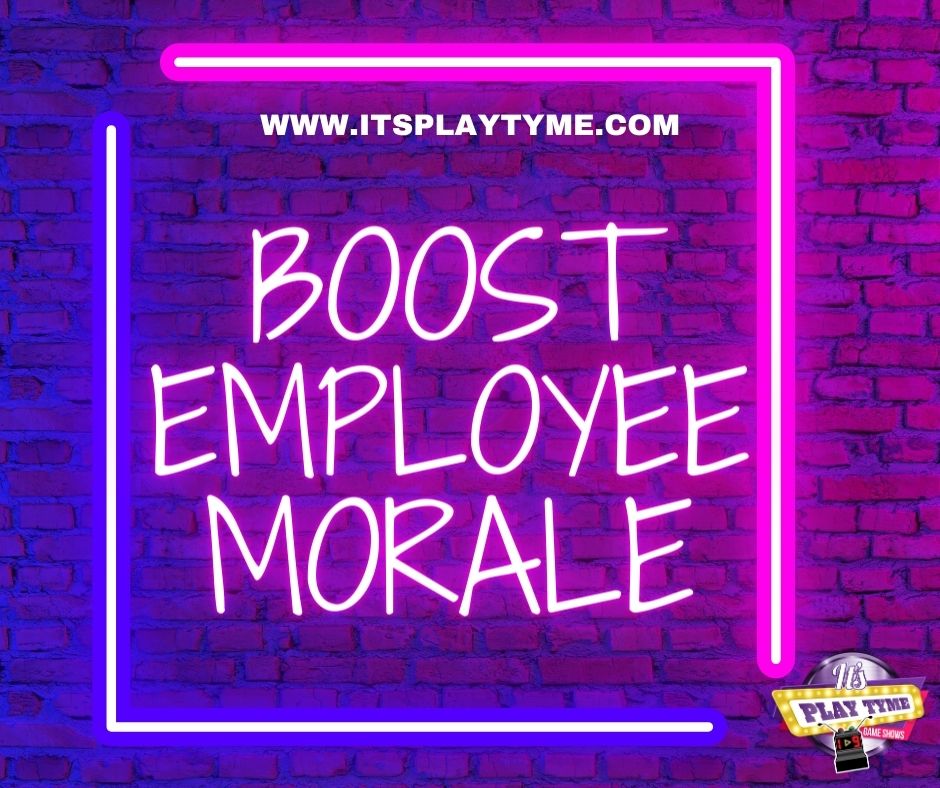
boost-staff-morale
Enhancing Collaboration and Communication
Effective teams are built on a foundation of strong collaboration and communication.
As a facilitator, you play a critical role in enhancing these essential aspects of teamwork.
Here are a few techniques you can utilize:
- Active Listening: Encourage your team members to actively listen to one another by rephrasing and summarizing what they hear.
This helps prevent misunderstandings and ensures that everyone has a clear understanding of what is being said. - Constructive Feedback: Teach your team members how to provide constructive feedback to one another.
Provide examples of specific feedback and encourage them to focus on behaviors, not personalities. - Effective Meetings: Help your team conduct effective meetings by setting clear agendas, assigning roles, and ensuring everyone has a chance to speak.
To further enhance collaboration and communication, consider incorporating team building exercises that focus on these skills.
For example, group problem-solving exercises can help team members learn how to communicate effectively, while team-building activities that rely on trust exercises can help develop mutual trust and respect.
The Power of Role-Playing
Role-playing is one team building technique that can be particularly effective in enhancing collaboration and communication.
By simulating various scenarios, team members can actually develop their communication skills and learn how to work together more effectively.
“Role-playing can be a powerful tool for helping team members develop their communication and collaboration skills. It provides a safe space for them to practice new behaviors and learn from one another’s feedback.”
When using role-playing exercises, it is important to create a safe space for team members to practice new behaviors.
Emphasize that the goal is not to make anyone feel uncomfortable, but rather to help everyone learn new skills.
Encourage team members to give feedback and be open to receiving feedback as well.
By utilizing these techniques and exercises, you can help your team members develop the skills they need to be successful.
As a team building facilitator, you are instrumental in creating the right kind of environment that promotes open communication and productive collaboration.
Building Trust and Engagement in Teams
As a team building facilitator, your strategies should be focused on building trust and engagement in teams. This is crucial in promoting collaboration, communication, and ultimately achieving shared goals. Below are some effective team building facilitator strategies:
- Team bonding activities: Organize activities that encourage team bonding and help to establish personal connections.
This can be a simple game, an offsite event, or a team lunch. These activities can help to build trust and encourage a sense of belonging. - Trust-building exercises: It is important to have trust-building exercises that focus on improving communication, authenticity, and vulnerability.
One exercise could be to pair team members and have them share something personal with one another.
This can help establish a level of trust and help team members feel more comfortable discussing issues in the future. - Creating a safe space: A team building facilitator is responsible for creating a safe space for open dialogue.
This space should be free of judgement and encourage team members to share their thoughts, opinions, and ideas.
It is important to be empathetic when team members share their feelings and encourage others to listen and respond with constructive feedback. - Encourage feedback: Encourage team members to provide feedback during team-building activities.
This can be in the form of anonymous feedback, surveys or open discussions.
Encouraging feedback can help to identify areas for improvement, build trust, and promote transparency. - Provide continuous learning opportunities: It is important to provide continuous learning opportunities to your team members.
This can be through training sessions, workshops or even books.
By investing in your team members’ professional and personal development, you show that you are interested in their growth as individuals and team members.
Book a Interactive Game Show!
Call us today. TV Style Game Shows are our specialty. Let’s Play!
Adapting Team Building Approaches for Different Teams
As a team building facilitator, it is crucial to possess the skills needed to adapt your approaches to different teams.
No two teams are the same, and each one requires a unique approach tailored to their specific goals, challenges, and dynamics.
Understanding Team Dynamics
The first step towards adapting to different teams is to understand their dynamics.
Take the time to observe how team members interact with one another, their communication styles, and their areas of strength and weakness.
This insight can help you customize team building activities that cater to their specific needs.
Flexibility
Flexibility is a key skill that a team building facilitator must possess to adapt their approach to different teams.
Flexibility allows you to pivot from one activity to another or modify an activity on the fly to meet the team’s changing needs.
Customization
Customization is a critical aspect of adapting team building approaches to different teams.
Use your understanding of team dynamics to customize exercises and activities to meet their unique needs.
For instance, if a team struggles with communication, focus on activities that promote active listening and effective communication.
| Team Building Facilitator Skills | How They Help Teams |
|---|---|
| Empathy | Understanding team members’ perspectives and feelings, building trust and respect between them. |
| Leadership | Providing clear guidance and direction to team members, ensuring they are aligned towards achieving common goals. |
| Adaptability | Modifying facilitation strategies and approaches to match the unique dynamics of each team, promoting successful outcomes and engagement. |
| Creativity | Designing and facilitating innovative and engaging team building activities that encourage creativity and problem-solving. |
Cultural Sensitivity
Adapting team building approaches also requires cultural sensitivity.
Different teams have different cultures, values, and beliefs that may impact their approach to team building activities.
As a facilitator, you must be aware of these cultural nuances and adjust your approach accordingly.
By possessing these skills and strategies, you can create an environment that promotes collaboration, communication, and trust among team members.
This leads to higher levels of engagement and success for your team building activities.
Measuring the Impact of Team Building Initiatives
As a team building facilitator, it is your responsibility to measure the effectiveness of your team building initiatives.
To measure the impact of your team building initiatives, you should collect feedback from team members.
This can be done through surveys, interviews, or focus groups.
Ask questions about what they found most useful or enjoyable about the activities, as well as areas they think could be improved.
Additionally, you should assess team performance before and after the team building activities take place.
This can be done through observations, metrics, or performance evaluations.
It is important to use this feedback and assessment to make improvements for future team building activities.
This ensures that your initiatives are effective and continue to drive team success.
Example of Feedback Collection:
| Question | Response |
|---|---|
| What did you find most useful about the team building activities? | “I found the trust-building exercises to be really helpful in getting to know my teammates better and building stronger relationships.” |
| What areas do you think could be improved? | “I think we could have had more time to debrief and discuss what we learned from the activities.” |
| Did the activities help improve team collaboration and communication? | “Yes, I feel more comfortable communicating with my teammates and we are working better together towards our goals.” |
By measuring the impact of your team building initiatives, you can ensure that you are fulfilling your responsibilities as a team building facilitator and effectively facilitating team building sessions for your team’s success.
Frequently Asked Questions – Roles of a Team Building Facilitator

frequently asked questions
1 – What are the crucial roles of a team building facilitator?
A team building facilitator is responsible for guiding and facilitating team building activities.
They create an environment that promotes collaboration, communication, and trust among team members.
2 – What are the key responsibilities of a team building facilitator?
The key responsibilities of a team building facilitator include planning, organizing, and executing engaging team building sessions.
They employ various strategies to ensure successful outcomes and facilitate effective teamwork.
3 – What is the role of a facilitator in team building activities?
The facilitator plays a pivotal role in team building activities by creating an environment that fosters collaboration, communication, and trust.
They guide team members through exercises and promote a positive and supportive team environment.
4 – What are the strategies for effective team building facilitation?
Team building facilitators employ various strategies such as planning, organizing, and executing engaging team building sessions.
They utilize technology, activities, and visual aids to enhance group dynamics and ensure successful outcomes.
5 – What qualities make a good team building facilitator?
A good team building facilitator possesses qualities such as adaptability, empathy, and the ability to manage group dynamics.
They are skilled in creating a positive and supportive team environment and facilitating effective communication.
6 – What is the role of a team building facilitator in measuring the impact of team building initiatives?
Team building facilitators are responsible for measuring the impact of team building initiatives.
They collect feedback, assess team performance, and make improvements for future activities based on the outcomes.
7 – What is the importance of team building facilitators in driving team success?
Team building facilitators play a vital role in creating cohesive and high-performing teams.
Their expertise in guiding and facilitating team building activities can unleash the potential of your team and drive them towards new heights of success.
![]()
Need some help? Book a live spooky game show experience today!
Contact us for further details.
For Immediate assistance by text – 917-670-4689
No deposit required.
We plan and facilitate all activities.




